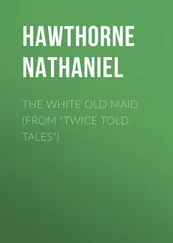Be the cause what it might, Clifford commonly retired to rest, thoroughly exhausted, while the sunbeams were still melting through his window-curtains, or were thrown with late lustre on the chamber wall. And while he thus slept early, as other children do, and dreamed of childhood, Phoebe was free to follow her own tastes for the remainder of the day and evening.
This was a freedom essential to the health even of a character so little susceptible of morbid influences as that of Phoebe. The old house, as we have already said, had both the dry-rot and the damp-rot in its walls; it was not good to breathe no other atmosphere than that. Hepzibah, though she had her valuable and redeeming traits, had grown to be a kind of lunatic by imprisoning herself so long in one place, with no other company than a single series of ideas, and but one affection, and one bitter sense of wrong. Clifford, the reader may perhaps imagine, was too inert to operate morally on his fellow-creatures, however intimate and exclusive their relations with him. But the sympathy or magnetism among human beings is more subtile and universal than we think; it exists, indeed, among different classes of organized life, and vibrates from one to another. A flower, for instance, as Phoebe herself observed, always began to droop sooner in Clifford’s hand, or Hepzibah’s, than in her own; and by the same law, converting her whole daily life into a flower fragrance for these two sickly spirits, the blooming girl must inevitably droop and fade much sooner than if worn on a younger and happier breast. Unless she had now and then indulged her brisk impulses, and breathed rural air in a suburban walk, or ocean breezes along the shore, — had occasionally obeyed the impulse of Nature, in New England girls, by attending a metaphysical or philosophical lecture, or viewing a seven-mile panorama, or listening to a concert, — had gone shopping about the city, ransacking entire depots of splendid merchandise, and bringing home a ribbon, — had employed, likewise, a little time to read the Bible in her chamber, and had stolen a little more to think of her mother and her native place — unless for such moral medicines as the above, we should soon have beheld our poor Phoebe grow thin and put on a bleached, unwholesome aspect, and assume strange, shy ways, prophetic of old-maidenhood and a cheerless future.
Even as it was, a change grew visible; a change partly to be regretted, although whatever charm it infringed upon was repaired by another, perhaps more precious. She was not so constantly gay, but had her moods of thought, which Clifford, on the whole, liked better than her former phase of unmingled cheerfulness; because now she understood him better and more delicately, and sometimes even interpreted him to himself. Her eyes looked larger, and darker, and deeper; so deep, at some silent moments, that they seemed like Artesian wells, down, down, into the infinite. She was less girlish than when we first beheld her alighting from the omnibus; less girlish, but more a woman.
The only youthful mind with which Phoebe had an opportunity of frequent intercourse was that of the daguerreotypist. Inevitably, by the pressure of the seclusion about them, they had been brought into habits of some familiarity. Had they met under different circumstances, neither of these young persons would have been likely to bestow much thought upon the other, unless, indeed, their extreme dissimilarity should have proved a principle of mutual attraction. Both, it is true, were characters proper to New England life, and possessing a common ground, therefore, in their more external developments; but as unlike, in their respective interiors, as if their native climes had been at worldwide distance. During the early part of their acquaintance, Phoebe had held back rather more than was customary with her frank and simple manners from Holgrave’s not very marked advances. Nor was she yet satisfied that she knew him well, although they almost daily met and talked together, in a kind, friendly, and what seemed to be a familiar way.
The artist, in a desultory manner, had imparted to Phoebe something of his history. Young as he was, and had his career terminated at the point already attained, there had been enough of incident to fill, very creditably, an autobiographic volume. A romance on the plan of Gil Blas, adapted to American society and manners, would cease to be a romance. The experience of many individuals among us, who think it hardly worth the telling, would equal the vicissitudes of the Spaniard’s earlier life; while their ultimate success, or the point whither they tend, may be incomparably higher than any that a novelist would imagine for his hero. Holgrave, as he told Phoebe somewhat proudly, could not boast of his origin, unless as being exceedingly humble, nor of his education, except that it had been the scantiest possible, and obtained by a few winter-months’ attendance at a district school. Left early to his own guidance, he had begun to be self-dependent while yet a boy; and it was a condition aptly suited to his natural force of will. Though now but twenty-two years old (lacking some months, which are years in such a life), he had already been, first, a country schoolmaster; next, a salesman in a country store; and, either at the same time or afterwards, the political editor of a country newspaper. He had subsequently travelled New England and the Middle States, as a peddler, in the employment of a Connecticut manufactory of cologne-water and other essences. In an episodical way he had studied and practised dentistry, and with very flattering success, especially in many of the factory-towns along our inland streams. As a supernumerary official, of some kind or other, aboard a packet-ship, he had visited Europe, and found means, before his return, to see Italy, and part of France and Germany. At a later period he had spent some months in a community of Fourierists. Still more recently he had been a public lecturer on Mesmerism, for which science (as he assured Phoebe, and, indeed, satisfactorily proved, by putting Chanticleer, who happened to be scratching near by, to sleep) he had very remarkable endowments.
His present phase, as a daguerreotypist, was of no more importance in his own view, nor likely to be more permanent, than any of the preceding ones. It had been taken up with the careless alacrity of an adventurer, who had his bread to earn. It would be thrown aside as carelessly, whenever he should choose to earn his bread by some other equally digressive means. But what was most remarkable, and, perhaps, showed a more than common poise in the young man, was the fact that, amid all these personal vicissitudes, he had never lost his identity. Homeless as he had been, — continually changing his whereabout, and, therefore, responsible neither to public opinion nor to individuals, — putting off one exterior, and snatching up another, to be soon shifted for a third, — he had never violated the innermost man, but had carried his conscience along with him. It was impossible to know Holgrave without recognizing this to be the fact. Hepzibah had seen it. Phoebe soon saw it likewise, and gave him the sort of confidence which such a certainty inspires. She was startled, however, and sometimes repelled, — not by any doubt of his integrity to whatever law he acknowledged, but by a sense that his law differed from her own. He made her uneasy, and seemed to unsettle everything around her, by his lack of reverence for what was fixed, unless, at a moment’s warning, it could establish its right to hold its ground.
Then, moreover, she scarcely thought him affectionate in his nature. He was too calm and cool an observer. Phoebe felt his eye, often; his heart, seldom or never. He took a certain kind of interest in Hepzibah and her brother, and Phoebe herself. He studied them attentively, and allowed no slightest circumstance of their individualities to escape him. He was ready to do them whatever good he might; but, after all, he never exactly made common cause with them, nor gave any reliable evidence that he loved them better in proportion as he knew them more. In his relations with them, he seemed to be in quest of mental food, not heart-sustenance. Phoebe could not conceive what interested him so much in her friends and herself, intellectually, since he cared nothing for them, or, comparatively, so little, as objects of human affection.
Читать дальше












